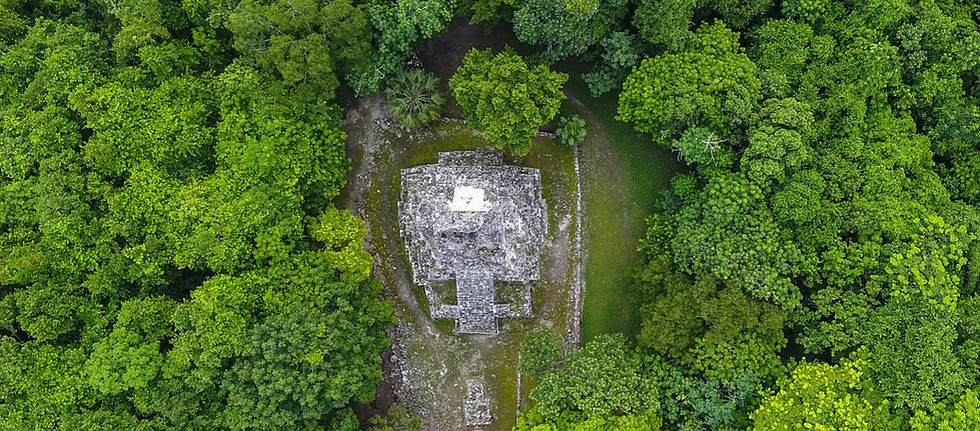How to Protect Our Oceans on World Oceans Day
- Kay

- May 16, 2019
- 3 min read

The future of the oceans is in our hands. This World Oceans Day, we’re celebrating the diversity of life in our oceans, and the ways in which we depend on the ocean. But we’re also examining the ways we can do better by them. No matter where you live—by the ocean or not—you can join Kay Tours and WorldOceansDay.org in protecting the greatest wonder in the world.
Marine Pollution
The first thing we can focus on doing to improve ocean quality is to reduce plastic pollution and marine litter. We are currently producing about 300 million tons of plastic every year, half of which is for single use. More than 8 million tons of plastic are dumped into the oceans every year. Packaging alone makes up 40% of total plastic usage. An average of 500 billion plastic bags are used worldwide, and more than one million bags are used every minute. A single plastic bag has a working life of fifteen minutes. In just the past ten years, we have produced more plastic than during the whole of the last century.
The process of producing bottled water requires around 6 times as much water per bottle as there is in the container. 14% of all litter comes from beverage containers, but this is excluding caps and labels.
Time it takes to degrade in water
Cardboard: 2 weeks
Newspaper: 6 weeks
Foam: 50 years
Styrofoam: 80 years
Aluminum: 200 years
Plastic: 400 years
Marine Life and Human Health

When plastic finds its way into the ocean, marine life is threatened. 1 in 3 species of all marine mammals have been found entangled in marine litter. When humans litter the ocean, the sea animals many humans eat become filled with chemicals. Pesticides, lead and other heavy metals in polluted water can contaminate water supplies and food chains through the marine life affected. These chemicals lead to hormonal problems, reproductive problems, nervous system damage, and kidney damage. Bacteria turn metals into mercury, and plankton easily absorb mercury. Mercury exposure can cause Parkinson’s disease, Alzheimer’s, and heart disease. Pollution in the ocean can also cause illness from physical contact or through ingestion. Stomach aches, diarrhea, and rashes are a few of these common reactions.
Ocean Diversity in Riviera Maya

We are concerned about the health of our oceans because we see the consequences of pollution every day. Whale shark season just began, and these magnificent fish were recently put on the IUCUN (International Union for Conservation of Nature) Red List of Threatened Species. The whale shark is the world’s largest living fish. They normally roam the ocean alone, but once a year they gather in large numbers to feed on plankton. Whale sharks weigh on average eleven tons, and they are about forty feet long. Whale sharks are vital to our planet’s health because they indicate the presence of plankton, which represents a healthy ocean.
Go on the adventure of a lifetime and swim with whale sharks!
Sian Ka’an is a biosphere reserve that was established in 1986. Sian Ka’an is the largest coastal protected area in Mexico. The Mesoamerican Barrier Reef is the second largest barrier reef in the world at 1300km. The barrier reef is made up of more than 84 species of coral, and some of the creatures you’ll find in Sian Ka’an include manatees, four species of marine turtle, and crocodiles.
These are just two examples of the rich biodiversity in Riviera Maya, and the Caribbean. In order to protect ocean life in the Mexican Caribbean, and around the world, we have some helpful reminds that we always share with our guests.
See the Mesoamerican Barrier Reef for yourself! Learn more about our private tour to Sian Ka'an.
Tips for Ocean Safety
Never use straws
Bring reusable bottles instead of buying plastic or to-go coffee cups
Avoid aluminum cans
Take your trash with you when you leave the beach
Instead of sitting on the beach eating and drink, spend your time snorkeling, or doing some other activity that doesn’t produce waste
Choose other products before buying ones that come in plastic wrap
Minimize shipping as much as possible
Use natural, organic products when swimming in the ocean
If you have any questions or concerns, please do not hesitate to write in the comment section below or send us an e-mail to: contact@kay.tours.



